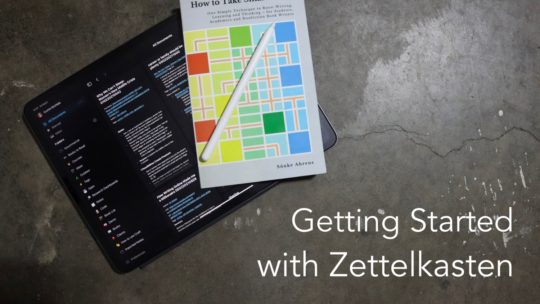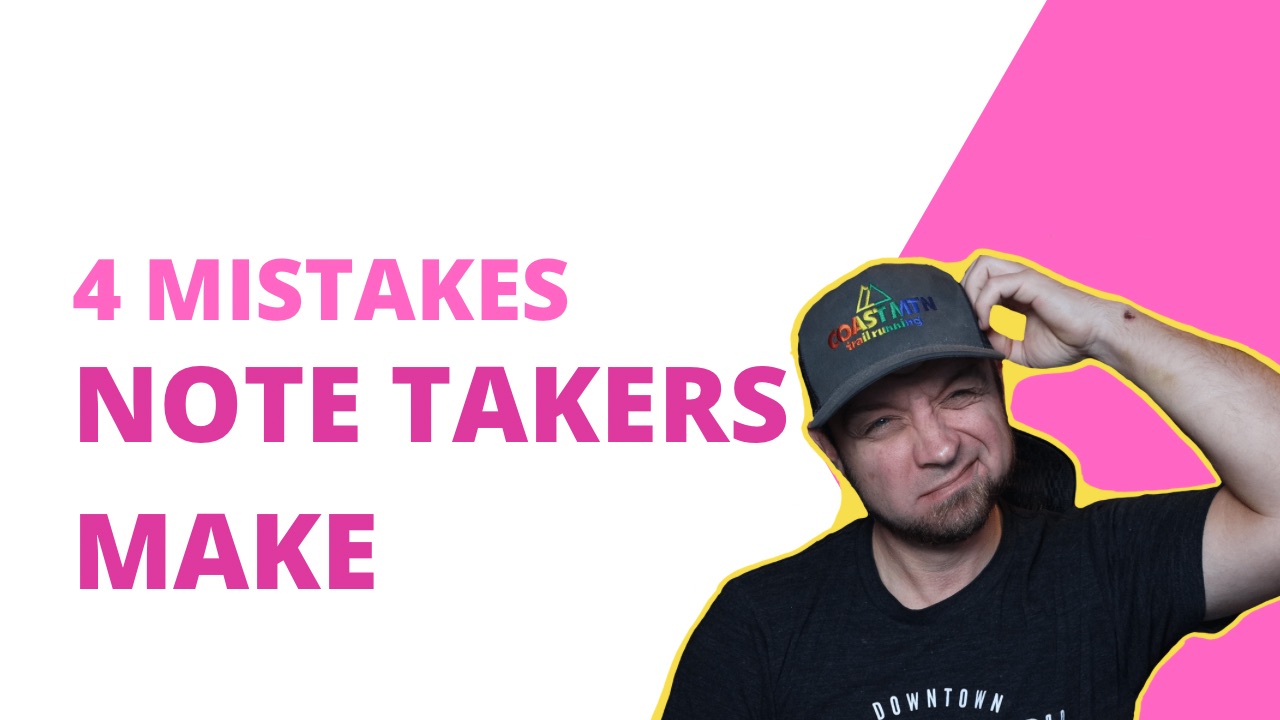Today we’re going to look at the mistakes beginner note-takers make, though they’re not limited to beginners really. As I’ve coached more people on their note process I see many people falling into these traps in their PKM system. They learn these bad habits then never recognize them and don’t make changes to their systems.
There is no perfect software
The first and biggest mistake that people new to taking notes make is that any problem they encounter in their note system is clearly fixed by whatever software is currently all the rage on YouTube. When Tana came around, people jumped to Tana because it was obviously the superior tool.
If the software jumpers had any real self-reflection tendencies then they’d quickly realize that in a few months, they’re jumping to the next “greatest” software a few months later because they encountered a problem in the last piece of hot software.
There is no perfect PKM/Zettelkasten software available. There never will be. Once you get past a very low minimum feature bar, one note software is about as good as the next. The improvements are minimal.
In almost every case, people jump software because they have a bad process and aren’t disciplined about taking their notes. So let’s look at the process mistakes the people make next.
Only Taking Notes Once
There is a fallacy going around about note-taking that if you take excellent notes you’ll never have to read a resource again. This is entirely a lie. I’ve read Deep Work by Cal Newport at least three times and each time I’ve got a bit more out of it. I’ve found ways that Deep Work relates to other resources I’ve read since the last time I read Deep Work. Good books always have more in them than you were able to glean the first time.
The other time you’re going to need to read a research resource again is when you have a specific project or set of questions in mind. If you have a writing project around a particular subject you’ll look at your notes to find things you’ve already read that relate. Yes use your notes as a jumping-off point, but now that you have a specific question in mind you’ll have a more focused reading of a resource.
This is where your notes help you save so much time. If I was to look up basic income in my notes I’d have a number of whole books that talked about it, as well as lots of places that had a short chapter, or even a single paragraph that talked about the subject. I can use my notes to go back and check the source material and make sure I’m understanding the views of the author in light of my focused project.
In this case, your whole PKM system is like a large index of all the material you’ve read before. It will help you narrow down your research faster and prevent you from reading entire books looking for a single mention of a topic that you couldn’t place in your memory.

Getting Started with Zettelkasten
If you’ve been wondering about what Zettelkasten is and how to start organizing your notes with this excellent system then this course is for you. I’ll cover the basics of choosing which tool to use, how to take notes, how to deal with linking your notes, and much more. You can also become a member to get all my courses.
$99 USD (30-day guarantee)
Review Your Notes
Many people talk big about reviewing their notes, but most of the people I coach from students to research scientists have poor note review practice. We easily think that if we can merely access information then it’s useful to us1. Merely being able to access information doesn’t make it all that useful to us, it’s having deeper thoughts and connections that make information useful. It’s spending time thinking about the notes we have and finding gaps in them that make the whole note-taking process useful.
You should have a regular practice of reviewing your notes to make connections. After 2 years I’ve spent a bunch of time reorganizing my notes in my vault to better fit how I’m using it. This has meant over the course of a week I’ve read almost every single one of my 4300 notes.
Once you realize that the value in your note-taking only comes when you work your notes and glean more knowledge out of them, and make more connections between notes, you’re on your way to becoming someone that’s able to learn well.
To that end, set aside an hour every week to review your notes. If you’re a student and your primary focus is to learn, set aside more time. If you have a job as a researcher and your core job function is to research and have new thoughts and make new connections, set aside most of your time to read and work on your notes.
One great way to do this is to use the Smart Random Note plugin. With this plugin, you can set up searches and then use Workspaces to save them. Once you’ve done this look for a random note and then make connections. The number of notes you get through in your time doesn’t matter. Sometimes you’ll spend all your time on a single note, sometimes you’ll look at many notes.
The point is that you worked on your notes and came up with more connections.
Not Focusing on Output
Finally, most people focus on the input side of note-taking. They talk up how many notes they added to their system in a week. They look at huge “pretty” graph views and use that to judge how good they are at note-taking.
The number of notes you have and your graph view are both entirely useless ways to judge how well your note system is working. In fact, they’re simply self-flagellation. You’re putting yourself through pain for nothing useful.
When you start your note process you should have some idea of what type of output should come from your notes. For me, it’s YouTube videos and writing on my site. In that case, I should only be judging my note system by the output. Is it helping me make more videos? Is it helping me find good ideas for writing member posts? If it’s not doing these things, then my note system is broken in some fashion.
Maybe I’m not using my time effectively to work on notes and write. Maybe I’ve fallen into the collector’s fallacy.
Whatever your issue is, you need to focus on the output of your note system instead of the input side.
If you’ve got some other ideas about mistakes people make with their note system, let me know about them in the comments.
